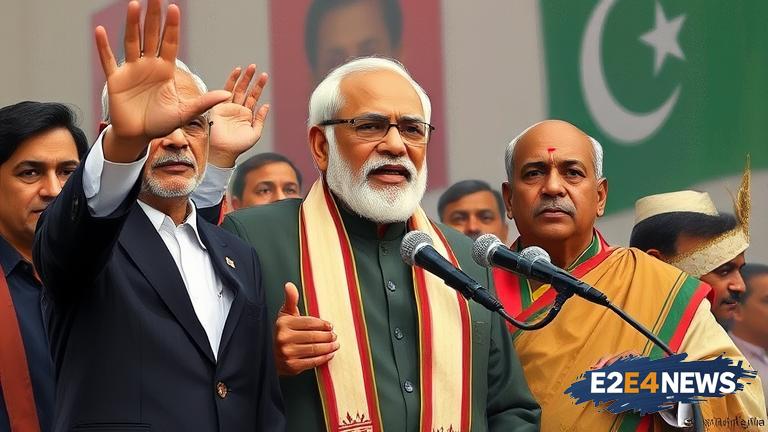The Awami League, a prominent political party in Bangladesh, has slammed Nobel laureate Muhammad Yunus for his recent comments, which they claim are pushing a Pakistani agenda. The party’s criticism comes after Yunus made statements that were perceived as being sympathetic to Pakistan’s stance on various issues. The Awami League has accused Yunus of betraying the trust of the Bangladeshi people and undermining the country’s sovereignty. The party’s leaders have also questioned Yunus’s motives, suggesting that he may be working to advance Pakistani interests in Bangladesh. The controversy has sparked a heated debate in Bangladeshi politics, with many calling for Yunus to clarify his position. The Awami League has a long history of opposing Pakistani influence in Bangladesh, and the party’s criticism of Yunus reflects its commitment to protecting the country’s independence. The party’s leaders have also accused Yunus of ignoring the sacrifices made by the Bangladeshi people during the country’s liberation war. The controversy has also drawn attention to the complex history between Bangladesh and Pakistan, which has been marked by tensions and conflicts over the years. The Awami League has called on Yunus to apologize for his comments and to reaffirm his commitment to Bangladesh’s sovereignty. The party’s criticism has been supported by many in Bangladesh, who see Yunus’s comments as a betrayal of the country’s trust. However, others have defended Yunus, arguing that his comments were taken out of context and that he is being unfairly targeted by the Awami League. The controversy has highlighted the deep divisions within Bangladeshi politics and the ongoing challenges faced by the country in its relations with Pakistan. The Awami League’s criticism of Yunus has also sparked a wider debate about the role of intellectuals and public figures in promoting national interests. Many have argued that public figures like Yunus have a responsibility to promote the interests of their country and to avoid making comments that could be perceived as treasonous. The controversy has also drawn attention to the importance of protecting national sovereignty and the need for vigilance in the face of external influences. The Awami League’s criticism of Yunus has been seen as a reflection of the party’s commitment to protecting Bangladesh’s independence and sovereignty. The party’s leaders have also emphasized the need for national unity and the importance of putting the interests of the country above personal interests. The controversy has sparked a wider debate about the role of politics in Bangladesh and the need for greater transparency and accountability in public life. The Awami League’s criticism of Yunus has also highlighted the challenges faced by the country in promoting economic development and reducing poverty. The party’s leaders have argued that the country’s development goals can only be achieved through a commitment to national sovereignty and the protection of the country’s interests. The controversy has also drawn attention to the importance of promoting social justice and reducing inequality in Bangladesh. The Awami League’s criticism of Yunus has been seen as a reflection of the party’s commitment to promoting the interests of the poor and marginalized. The party’s leaders have also emphasized the need for greater investment in education and healthcare, and for policies that promote social justice and reduce poverty. The controversy has sparked a wider debate about the role of the government in promoting development and reducing poverty, and the need for greater accountability and transparency in public life.
